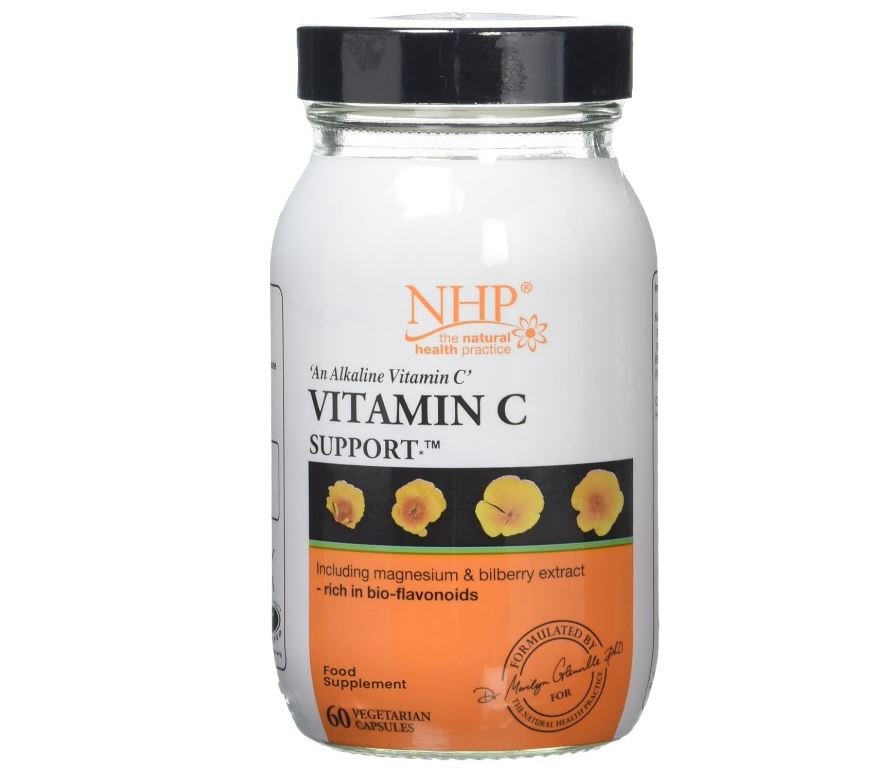Vitamin C is regarded with more respect than most other nutrients. For centuries, this potent antioxidant has been a cornerstone of holistic wellness, including its role in collagen production and immune support. However, more profound advantages are now being discovered by contemporary research, demonstrating that vitamin C in the proper form can do much more than merely ward off colds. Through sophisticated formulations, bioavailability improvements, and supplementary botanicals, practitioners of natural health are revolutionizing the use of this vital vitamin.

Key Information About Natural Health Practice Vitamin C
| Product Details | Description |
|---|---|
| Brand | Natural Health Practice |
| Ingredients | Magnesium ascorbate, Bilberry extract |
| Primary Benefits | Boosts immunity, reduces fatigue, enhances energy |
| Suitable For | Vegans, Vegetarians, Kosher, and Halal certified |
| Dosage | Two capsules daily with meals |
| Price | £19.77 |
| Certified Quality | Kosher, Halal, Vegan, Vegetarian certified |
The use of magnesium ascorbate, a softer, non-acidic form of vitamin C, has become the focus of a particularly creative approach to vitamin C supplementation in holistic health circles. The immune-boosting qualities of magnesium ascorbate are identical to those of traditional ascorbic acid supplements, but without the potential for gastrointestinal distress. Leading the way in this regard are natural health companies such as NHP (Natural Health Practice), which guarantee that consumers who are concerned about their well-being can benefit fully from vitamin C without experiencing any unwonted negative effects.
Bilberry extract is another incredibly successful addition to contemporary vitamin C formulations. It is a potent antioxidant that supports circulation, inflammation control, and eye health. Vitamin C is better absorbed and retained when bilberries are consumed because they contain anthocyanins that complement it. Bilberry-infused vitamin C supplements are now frequently suggested by practitioners as a component of an all-encompassing wellness program.
Although vitamin C from supplements is still a mainstay of natural health, whole-food sources are becoming more popular. Vitamin C concentrations in superfoods like sea buckthorn, acerola cherry, and camu camu are much higher than those in more conventional foods like oranges. These nutrient-dense botanicals are being used to make organic, bioavailable ways to maintain optimal levels of vitamin C in smoothies, therapeutic teas, and functional wellness drinks.
Vitamin C’s potential has also been embraced by skincare, with topical serums and creams being used extensively to support skin that is youthful and glowing. Because it aids in the synthesis of collagen, it is a vital component of anti-aging products that help to prevent environmental damage, lighten dark spots, and fight fine lines. A vital component of holistic beauty regimens, high-quality vitamin C formulations have been demonstrated to significantly improve skin texture and resilience when applied correctly.
Among athletes, celebrities, and people with long-term medical conditions, IV infusions have become popular for those seeking intensive vitamin C therapy. High-dose infusions can strengthen immunity, hasten the healing process from illness, and aid in detoxification, according to proponents of intravenous vitamin C therapy. Although opinions on its long-term effectiveness are still divided, many people who receive regular IV vitamin C treatments report feeling more energized, recovering more quickly, and having better general health.
Another topic that is gaining more attention in functional medicine is the relationship between vitamin C and adrenal health. Since long-term stress severely depletes the body’s vitamin C stores, practitioners stress the importance of vitamin C in lowering cortisol levels, restoring adrenal balance, and improving the body’s capacity to cope with stress. For people who are experiencing chronic fatigue, burnout, or anxiety, many natural health experts advise increasing their vitamin C intake.
The argument over natural versus synthetic sources of vitamin C is becoming more heated as awareness increases. Although ascorbic acid produced in a lab is efficient, it is devoid of the co-factors and bioflavonoids that are found in whole-food sources of vitamin C. A trend toward minimally processed, plant-based vitamin C supplements has been spurred by this, guaranteeing that consumers get a fuller range of nutrients in their purest form.
